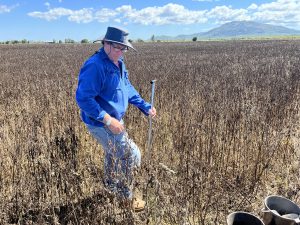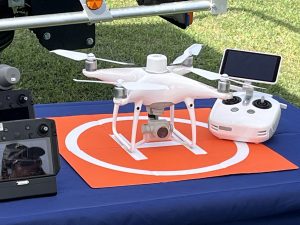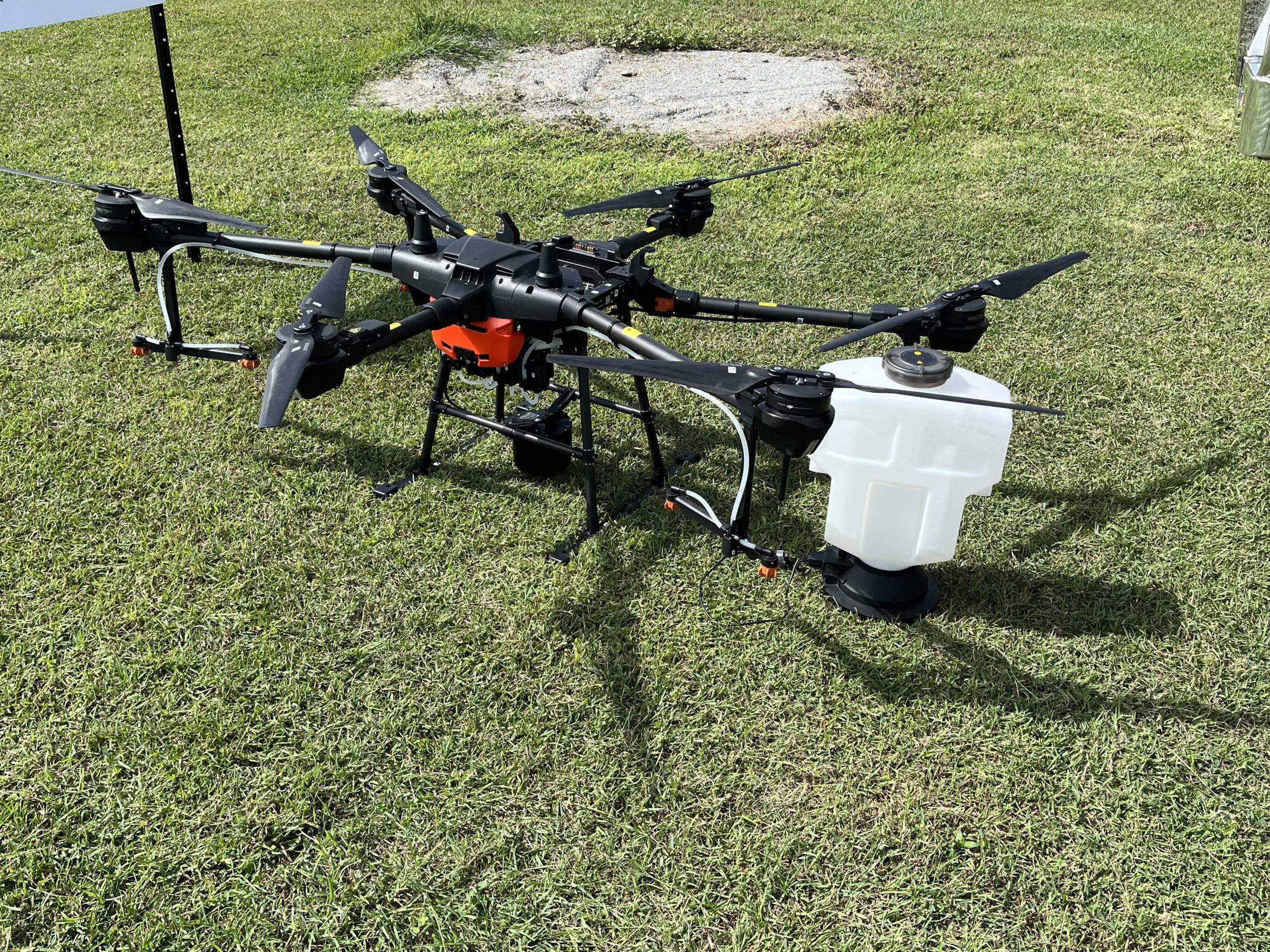Connecting north Queensland’s vegetable producers to new ag-tech
Autumn is the start of an intensive vegetable growing season in north Queensland. Fields have been ploughed in readiness for season to start. VegNET – North Queensland hosted and supported several events in the region focused on ag-tech and Soil Health. Regional Development Officer David Shorten discusses outcomes from these events.
Soil health expert visit
Bowen Gumlu Growers Association (BGGA) hosted a visit by leading soil expert David Hall on Thursday 24 March. David has over 30 years’ experience in soil management research as a researcher and project leader. His fields of research have encompassed the use of amendments (gypsum, lime, wetting agents, clay, organic compounds), tillage (deep, shallow) and cropping rotations to modify and improve soil productivity.
David was able to visit producers across the region, where he took samples to analyse before sending a report back to the growers. There were a large range of soil types for the small geographic area that the group was able to sample and attendees discussed ideas on best management practices for those soil types. After the visits, David and agronomist Jessica Volker sat down virtually to discuss a wide range of issues on soil health in the region.
The following day, David was the guest speaker at the Compost in Agriculture Workshop held at the Queensland Department of Agriculture and Fisheries’ (DAF) Bowen Research Facility.
The workshop was designed to help north Queensland growers and industry understand the benefits and effective use of compost and mulches produced from recycled organic inputs. There was a good turnout and all attendees felt that they received valuable information from the event.

Weather station field walk
Wireless weather stations were installed as a joint project between DAF and BGGA. They were set up last year in several locations across the region to establish a local sensor network, which could be accessed by growers to gather improved data on weather conditions in proximity to local farms in the growing region.
In March, BGGA facilitated on-site visits for growers to view the weather station. Sarah Limpus from DAF led the discussion into the technical functionality of the weather station, while Jessica Volker – an agronomist and owner of Lower Don Organics – provided valuable insights into how it was being utilised by growers across the region.
Key points discussed included:
- Functional overview of the MEA weather station and the installed sensors.
- Accessing and using the Greenbrain online platform to view data from the weather stations.
- How to interpret data from the weather stations to make informed decisions around pest and disease management, nutrient application, and irrigation.
- Tips on how to compliment the data with on-farm sensors and other technology.
- Differences in the temperature between the local weather station versus the Bureau of Meteorology (BOM).

Precision ag-tech
NQ Aerovation recently hosted a drone workshop in Bowen showcasing precision ag-tech and how its use can benefit north Queensland growers.
With ever-increasing input costs, growers are looking for new and innovative ways to save money through precision agriculture.
Drones are a recent entry into the ag-tech space, but they have already evolved to play a crucial role in increasing productivity and sustainability. NQ Aerovation’s Luke Jurgens showcased a range of drones that demonstrated a large range of applications now available to growers in the region.
Biological control application
Biological control agents are used to improve biosecurity through limiting the impact of pests on your crops. Beneficial insects cover a wide range of local pests including silverleaf whitefly, thrips, mites, heliothids and moths.
Precision spray application
NQ Aerovation drones are equipped with advanced variable rate technology that can spray your crops with farm more precision than conventional tractor spraying.
Drones come into their own when paddocks are too wet for conventional farm equipment. The use of drones also reduces compaction on newly ploughed fields.
Mapping and crop data
NQ Aerovation drones are so sophisticated these days that they can monitor crop damage, identify levels of infestation and apply precision treatments reducing time and money spraying the entire crop.
Find out more
Please contact VegNET – North Queensland Regional Development Officer David Shorten on 0419 429 808 or email rdo@bowengumlugrowers.com.au.
VegNET 3.0 is a strategic levy investment under the Hort Innovation Vegetable Fund.
This project has been funded by Hort Innovation using the vegetable research and development levy and contributions from the Australian Government.
Project Number: VG21000
Cover image: Spray drones can hold 30 litres and be used for a wide range of chemicals.

